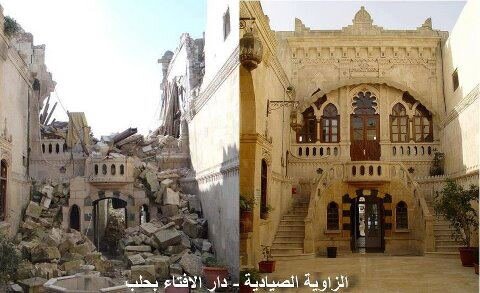
An intrepid group of Syrian archaeologists have banded together to form the Association for the Protection of Syrian Archaeology (APSA), essentially a modern day, Middle Eastern Monuments Men dedicated to preserving the region’s cultural heritage during the ongoing civil war, reports Spiegel Online.
Known as the cradle of civilization, Syria is home to some of the world’s oldest settlements, including six United Nations Educational, Scientific and Cultural Organization World Heritage Sites, all of which are currently listed as endangered. As artnet News reported in May, ancient Christian sites in Maaloula have become casualties of war.
Recovering cultural artifacts from active battlegrounds runs the considerable risk of attracting sniper fire—at least one man has died in his efforts. Even documenting the sites by taking photographs puts the archaeologists in such danger that they’ve cleverly jerry-rigged ballpoint pens to hide tiny digital cameras. These crusaders live in fear that they will be mistaken for spies, kidnapped, tortured, and even executed.
Nevertheless, men like APSA founder Cheikhmous Ali remain dedicated to protecting the country’s mosques, Crusader castles, and museums full of ancient treasures, and to stopping smugglers from profiting on the spoils of war. “I grew up with so much unique history on my doorstep,” Ali told Spiegel. “I was never going to be anything other than an archaeologist.”
Since civil war broke out, excavations at archaeological sites have been abandoned, leaving them vulnerable to looters. The region’s artifacts have been placed on International Council of Museums’s red list of commonly looted objects, which will hopefully help police stop smugglers at the Turkish, Lebanese, and Jordanian borders (see artnet News article).
The APSA’s work, however, is expensive. Ali hopes to document the state of the Dead Cities in the Limestone Massif (dating back to the first through seventh centuries), but estimates the project would cost €180,000 ($135,000). Luckily, the APSA is not alone in its efforts. As artnet News reported last month, the Penn Museum’s Penn Cultural Heritage Center helped organize a a three-day “Emergency Care for Syrian Museum Collections” training program for Syrian museum curators, heritage experts, and concerned civilians and activists.